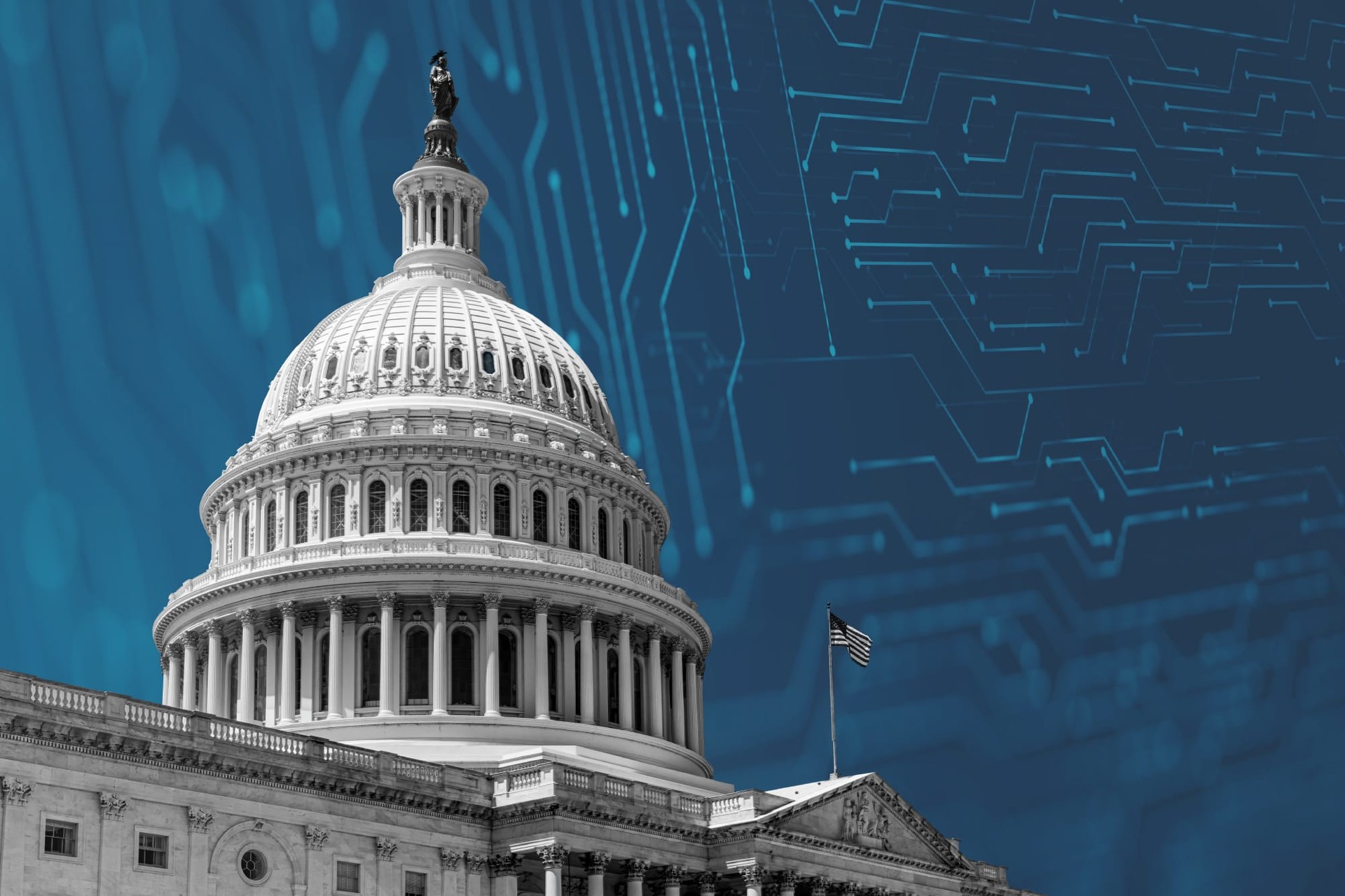Memo Published June 18, 2025 · 6 minute read
Ctrl-Alt-Delete: Democrats Need a Tech & Innovation Reset
Gabe Horwitz & Josh Freed

The Democratic Party—once the leader on innovation—has largely lost its way on technology. Democrats embraced the future in 1992 when Bill Clinton and Al Gore ran and again in 2008 with Barack Obama and forward-thinking congressional leaders. These policymakers understood the technological advancements as well as tech’s ability to significantly contribute to the US economy. But that widespread embrace of innovation has morphed over the years into something between skepticism and downright hostility among too many lawmakers who identify as left of center. As a result, Democrats are too often seen as the party of no when it comes to technology.
Innovation’s acceleration—from AI to biomedicine to self-driving cars—raises fair and fundamental questions over the downsides of disruption. Some bad actors with malicious intent will try to prey upon others and need to be stopped. But the technological revolution also offers immense promise for our health, wellbeing, education, financial security, and the economic and national security of our country. If Democrats are reflexively against technology or solely obsessed with the size of companies, we cede the opportunity to guide that innovation to beneficial ends. And we have seen that when Democrats take themselves out of the debate, Republicans will gleefully fill the void.
Why Democrats Must Embrace Innovation and Technology
Advanced economies are shifting from the information age of the Internet and social media to what some suggest will become the Age of Intelligent Machines. Automation, artificial intelligence, robotics, advanced energy, and advanced biotech will fundamentally reshape our economy, security, and daily life—in ways that progressives have long championed. Just think:
- Artificial Intelligence: In addition to unleashing economic growth, AI will improve medical diagnostics and treatment plans, tailor educational content to student needs, reduce costs for working- and middle-class families, and help entrepreneurs reach more customers.
- Biotech: Gene-editing, biologic drug and mRNA vaccine development, durable RNA-based genetically targeted therapies, surgical advancements, enhanced crop production, and improved disease and pest control will help billions live healthier and longer.
- Clean Tech: Advanced geothermal, geologic hydrogen, Perovskite solar, advanced transmission technologies, solid state battery storage, advanced fission, and even fusion power could finally unleash an era of very cheap, diverse, and reliable clean energy that will displace fossil fuels, meet the exponential energy demand of advanced economies, and rapidly reduce global energy poverty.
- Defense & Space: Autonomous drone and robot systems, next-gen satellites, hypersonic weapons, space-based missile interceptors, and new manufacturing techniques will protect Americans from future threats and help us explore more of our galaxy.
- Quantum Computing: Quantum computers will spur a new materials revolution developing entirely new classes of superconductors, nanotechnology, and metamaterials that could transform energy storage, fusion, and computing.
- FinTech: Financial technologies are opening capital markets to families and entrepreneurs who traditionally have been left behind, lowering costs and fees, and creating new sources of lending and equity.
- Autonomous Everything: Self-driving vehicles, drone deliveries, and AI-managed supply chains will make transportation and logistics much more efficient and accessible.
How Democrats Can Embrace Innovation and Technology
These innovations could be more than the Fourth Industrial Revolution, as they bring together intelligence, automation, and biotechnology. The big question will be whether the US government can provide the support and guardrails to ensure this revolution brings out the best in these sectors and delivers on its enormous promise for American workers and the nation.
Currently, the US government is badly outdated and structured in a way that stifles the growth and opportunity that innovation creates. Reforms are needed, but simply slashing and burning government and dismantling some of the country’s strongest research assets are not the answer—no matter how hard Republicans try. Instead, Democrats must promote a new, purpose-built system that accelerates American technology and innovation to benefit our country, increase exports, and uplift the working- and middle-class.
To do this, Democrats should embrace the following priorities:
- Make the United States the global hub for emerging and advanced tech. The United States must compete on a fair playing field with China, or we will lose the race on AI, chips, batteries, and robotics—and with it our national security leverage. That requires more engagement with allies and trading partners in order to support American interests on the front lines of the battle with China, protect American interests from international overreach, and develop an aggressive export strategy to counter China.
- Build a 21st century permitting and infrastructure system. The current permitting system isn’t slow—it’s broken. We need to develop a radically simplified framework tailored to 21st century technologies that also maintains our high economic, environmental, and worker standards.
- Supercharge innovation with robust federal investment and reliable intellectual property protections. The United States is the undisputable leader in R&D. We must regain that mantle and re-fund federal investments in innovation. Public-private co-investment and strong, reliable IP protections are essential. From university lab discoveries all the way through to first of a kind deployment, a system supporting investment and technology is key. In an era of hyper-scaling innovation and competition with China, this funding pipeline needs to be supercharged with streamlined grant-making, new mechanisms like the UK’s National Innovation Wealth Fund, and reform of investment rules to allow more capital to flow into everything from high-growth startups to late-stage innovative companies.
- Future-proof the workforce with a skills-based, AI-ready education system. The next era of technological innovation requires an overhaul of education and training systems to give workers the skills in AI, advanced manufacturing, and other technologies. We also need a redo of our immigration system to bring in the high-skill workers from around the world that will create opportunity here at home.
- Establish clear rules of the road that only regulate what’s necessary. One federal standard is easier to comply with than 50 different state standards. Regulations should ensure technology is safe, but tacking on extraneous regulations to solve disparate problems only suffocates the innovation we’re trying to grow.
The Fourth Industrial Age of Intelligent Machines has the potential to create immense prosperity, but it will also bring massive disruptions. Jobs will shift and ethical concerns about AI decision-making will become urgent. Over the years, we have seen green shoots of congressional leadership, action, and execution on these issues—then-Leader Nancy Pelosi spearheaded an innovation agenda in 2005, Senate Democratic Leader Chuck Schumer built a bipartisan roadmap for AI, Rep. Ro Khanna has pushed to spread the benefits of technology into the Heartland, the New Democrat Coalition has had innovation task forces throughout recent Congresses, and Rep. Sam Liccardo is building a forward-looking agenda on tech, to name just a few.
But now, Democrats throughout the caucus should embrace and shape this shift proactively—rather than resisting it—and provide an optimistic path forward for the United States that will benefit all Americans. Democrats have led on an innovation agenda before, they can do it again.

